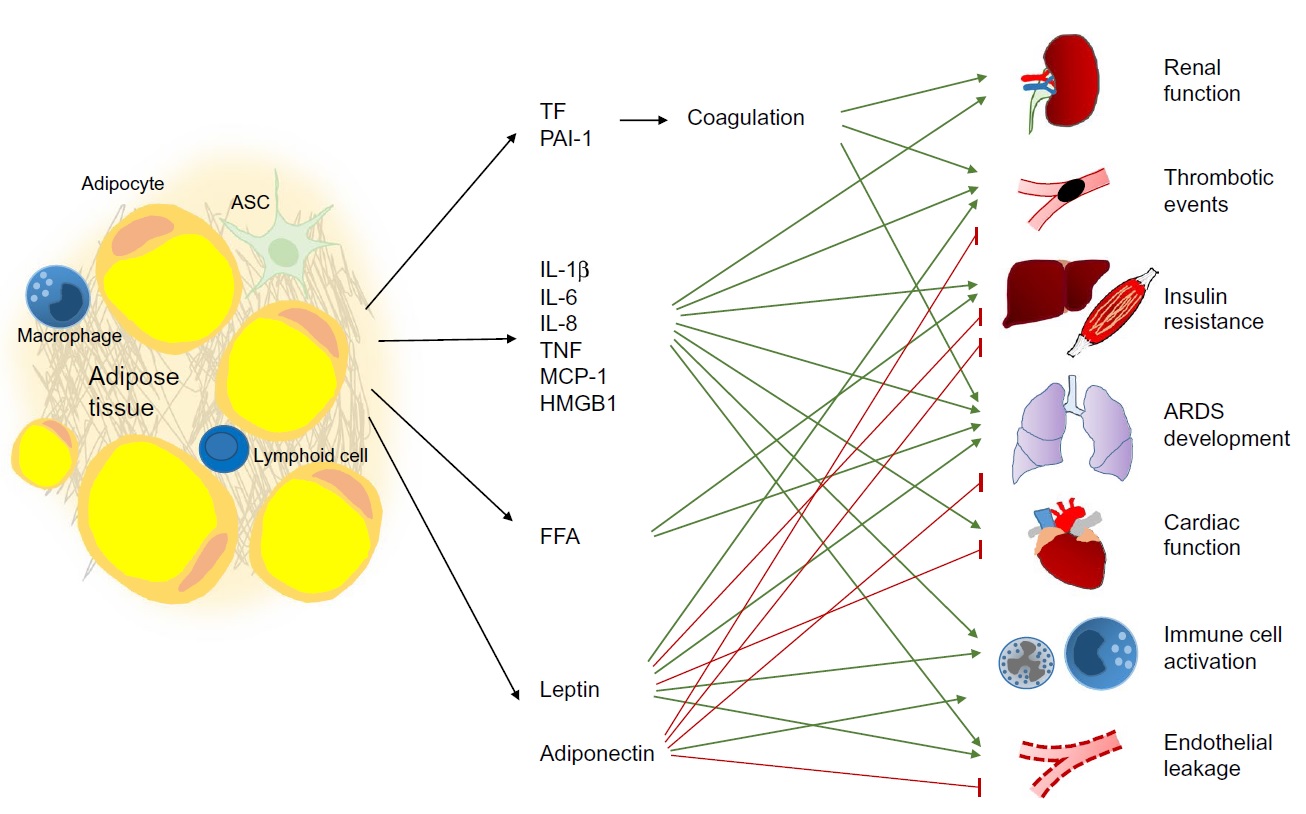
A09 N: The role of white adipose tissue in posttraumatic inflammation and organ dysfunction
PIs: R. Halbgebauer, P. Fischer-Posovszky
The immune reaction after severe injury is characterized by a strong pro- and anti-inflammatory response. Besides its functions as energy storage, white adipose tissue (WAT) regulates vital processes, e.g., food intake and energy homeostasis, via its secretion products, and plays a causative role in chronic diseases. Of note, outcome after trauma is influenced by body weight: while overweight exerts a protective function, patients with obesity have a higher risk of death. In addition, previous studies point to a correlation between adipokine release and posttraumatic multiple organ failure. Adipokines have numerous effects on local and circulating immune cells as well as distant organ systems. Our preliminary findings in an in vitro model of adipose trauma show a robust pro-inflammatory response and adipocyte energy depletion upon damage-associated molecular pattern stimulation, presumably modulating metabolism and inflammation of adipose and other tissues. In vivo, adipose tissue expression of inflammatory cytokines and adipokines was significantly altered early after murine polytrauma and hemorrhage. In a clinical study in severely injured patients, we found profound changes in plasma concentrations of adipokines. Therefore, this project aims to elucidate the role of WAT in posttraumatic immune responses and organ dysfunction. We hypothesize that i) WAT, presumably via adipokines, contributes to posttraumatic blood-organ barrier dysfunction and organ injury and ii) that severe injury initiates a rapid inflammatory response in adipocytes, further aggravating systemic inflammatory processes. To deliver scientific proof of a crucial role of WAT in trauma, we will use a mouse model of acute fat loss. Employing an in vitro model of traumatized adipose tissue, in vivo studies in mice after injury, and an observational clinical study in polytraumatized patients and healthy volunteers, we will further characterize the role of WAT in posttraumatic immune responses, metabolism, and organ dysfunction, and elucidate the underlying pathomechanisms behind an unbalanced posttraumatic inflammatory response and organ failure.
Principle investigators
Dr. rer. nat. Rebecca Halbgebauer
Institute for Clinical and Experimental Trauma Immunology
Ulm University Medical Centre
Helmholtzstr. 8/1
89081 Ulm
Tel.: +49 731 500 54806
E-mail: rebecca.halbgebauer(at)uniklinik-ulm.de
Prof. Dr. rer. nat. Pamela Fischer-Posovszky
Department of Pediatrics and Adolescent Medicine
Ulm University Medical Centre
Eythstr. 24
89075 Ulm
Tel.: +49 731 500 57415
E-mail: pamela.fischer(at)uniklinik-ulm.de

